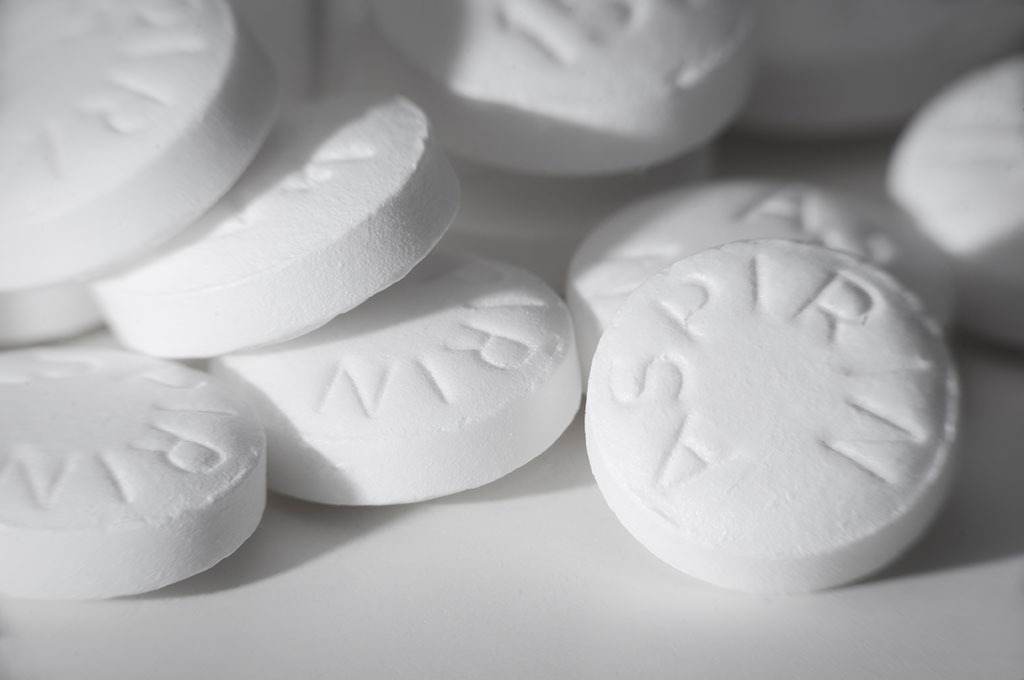RELATED: If You Take This Medication, You’re More Likely to Get a Blood Clot. If you’re one of the millions of people who count low-dose aspirin as one of the pills you take every day as a health precaution, you might want to stop. A recent study analyzed data from the National Health and Nutrition Examination Survey from 2011 to 2018, which included information on 7103 patients who were 60 years or older. Results from questionnaires showed that just up to 62 percent of respondents with diabetes in their 70s diabetes were using preventative aspirin, as well as 48.5 percent of those without diabetes. However, the shocking revelation in the results was that while some respondents on aspirin regimens had a history of heart disease, the majority of them did not, with an estimated 9.9 million patients needlessly taking the pill daily without their physician’s advice. According to Rita Kalyani, MD, the study’s senior researcher and associate professor of medicine at Johns Hopkins University School of Medicine, this behavior goes against current recommended guidelines for people over 70. The study’s authors point out the new guidelines issued by the American Heart Association (AHA) and the American College of Cardiology (ACC) in 2019 recommending that people over the age of 70 without existing heart disease or prior heart attack or stroke diagnosis stop taking aspirin every day for prevention purposes. The shift was brought about after research showed the potential cardiovascular rewards older patients saw from taking aspirin were minimal compared to the risks of internal bleeding the OTC medication can cause. The change represented an about-face that derailed decades of medical thinking and practice, leaving many doctors and patients unaware of the new guidelines, as shown by the study’s results. “It’s confusing even for health care providers,” said Wilson Pace, MD, chief medical officer at the DARTNet Institute in Colorado, wrote in an editorial accompanying the study. RELATED: The FDA Just Issued a New Warning About These OTC Pain Meds. Pace admits that there are certainly benefits to taking daily aspirin for patients with clogged arteries or who have previously suffered a heart attack or stroke. But according to the AHA and ACC guidelines, this only includes certain patients between the ages of 40 and 70 who are not at an increased risk of bleeding.ae0fcc31ae342fd3a1346ebb1f342fcb Pace says another preventative measure is more advisable for those above 70 who are looking to avoid a major health emergency. “If you’re 75 and have diabetes, I wouldn’t start you on aspirin,” he explains. “I’d go with a statin,” noting that the widely prescribed drugs that can help lower “bad” LDL cholesterol “clearly help prevent primary disease.” He also pointed out that many patients started taking daily aspirin regimens years ago and have simply not stopped since passing the newly advised age threshold. He recommends that anyone that has been taking the OTC medication as a preventative measure for years should talk to their doctor about whether it’s safe to continue to do so.
Doctors caution against taking a daily aspirin without consultation because of its blood-thinning properties. This means “it can increase the chance of bruising and bleeding, in addition to its other adverse reactions such as upset stomach, abdominal pain, rash, and headache,” Jessica Nouhavandi, PharmD, lead pharmacist and founder of online pharmacy Honeybee Health, previously told Best Life. Unfortunately, the low dosage that many have long assumed was benign can have serious health consequences. “Aspirin was associated with an increased risk for bleeding severe enough to require transfusions or hospitalization,” Christopher Cannon, MD, a cardiologist at Harvard-Affiliated Brigham and Women’s Hospital, told Harvard Health referencing three studies cited in the AHA and ACC guideline changes. Long-term use of this OTC medication is also associated with an increased risk of major gastrointestinal bleeding. According to the Mayo Clinic, signs of gastrointestinal bleeding may include lightheadedness, difficulty breathing, fainting, chest pain, abdominal pain, vomiting blood, black tarry stool, and rectal bleeding. RELATED: If You Take This Medication, U.S. Officials Have a New Warning for You.



